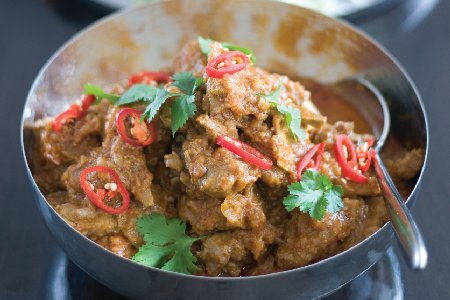Eid-ul-Fitr: Ramadan Ends – August 19th 2012
Deborah Swallow | August 19th, 2012 in : days of significance, General, other interesting stuff, social practices, The Middle East/Arab World
‘Eid-ul-Fitr’ celebrates the end of the Muslim period of fasting, known as Ramadan.

It's forbidden to fast on Eid ul-Fitr.
At the end of the month, once fasting has been completed, a big celebration takes place known as ‘Eid-ul-Fitr’, the Festival of the Breaking of the Fast. During this celebration Muslims dress in their finest clothes, give gifts to children and spend time with their friends and family. At Eid it is obligatory to give a set amount of money to charity to be used to help poor people buy new clothes and food so they too can celebrate.
What happens at the end of Ramadan?
The month of Ramadan is declared over when the first crescent of the new moon appears in the sky. When it ends, the month of Shawwal begins. This is when the three day festival, ‘Eid ul Fitr’, the Festival of Fast breaking, takes place. It is a happy occasion, marked by prayer, celebration, wearing new clothes and festive meals. It is also a time of forgiveness and making amends.
Due to the charitable-giving nature of the festival, in the Middle East, TV programmes encourage donations and people phone in with pledges in much the same way as the BBC with its Children In Need Day. The programmes show the running total of the cumulative amount, willing people to exceed the total of the previous year.
Charitable Giving (Zakat) during Ramadan
As well as fasting, generosity and giving to charity is an integral part of Ramadan. Before the day of Eid, during the last few days of Ramadan, each Muslim family gives a determined amount as a donation to the poor. at the very least an amount calculated to feed one poor person in their region for a day. This is called ‘fitra’ and is a reminder of the suffering of others. This donation is often of actual food; rice, barley, dates, rice, etc. to ensure that the needy can have a holiday meal and participate in the celebration. This donation is known as sadaqah al-fitr (charity of fast-breaking). Muslims buy gifts to share with their family and friends. They generously give to the poor and needy.
Across the Muslim world, large amounts of money are raised for charity with money going to projects encompassing local charities, orphans aid and development projects, and gifts for needy families to help them celebrate the festival. It is important for Muslims to think of their brothers and sisters around the world who are suffering.
It’s impossible to know how much money is donated each year but Muslim Aid in the UK raised £4m last year and the Qatar Charity (QC) in Qatar, has announced social and recreational charity projects totalling 23.5million QR (approx. £4m).
The Qatar Red Crescent has also launched their Ramadan charity campaign, using the theme, ‘thinking of others to make the world happy’. Projects will help those suffering in other countries, such as the Horn of Africa, Sudan, Darfur, the Balkans and Pakistan. The appeal for the Horn of Africa is poignant considering the current scale of disaster. Last year, the charity raised around £3 million for this appeal, to fund food distribution, provide water and improve health and nutrition. They also want to deploy a medical team composed of public health specialists. Money has been raised to help many countries including the Red Crescent charities in Yemen, Syria and Lebanon.
But it’s not only money that is donated. In 2009, the Majid Al Futtaim shopping malls in the UAE collected 23,599 books and 26,537 bags full of clothes to go to the needy, in their ‘Make a Difference This Ramadan’ collection. Tens of thousands of families benefited from the initiative and the UAE Red Crescent society distributed the goods.
Additionally, Muslims in the UK are raising money for local charities. The Leeds Grand mosque has released its charity schedule, with an appeal for a different charity on each day of Ramadan. Charities include Family Relief, African Relief Fund, Kashmir Relief and Development Fund and the Muslim Deaf Group.
Footnotes:
Other related articles you may be interested in:
‘Ramadan in the workplace – how can I help my Muslim colleagues’
‘10 ideas for Ramadan at your workplace’
‘What’s it like to fast for a month?’
For an insightful understanding of ‘The Significance of Fasting in the Month of Ramadan’ written by a Muslim, read the article on Khurram’s blog.
Also in August:
International Day for World’s Indigenous People – 9th
International Youth Day – 12th

Tags: charity, donation, Eid-ul-Fitr, fast breaking

 Hello, I'm Deborah Swallow and, for the last fifteen years, I've worked in over thirty countries addressing the complexities of people working internationally across multiple cultures, so individuals and organisations alike can gain an authentic competitive edge and win in international markets.
Hello, I'm Deborah Swallow and, for the last fifteen years, I've worked in over thirty countries addressing the complexities of people working internationally across multiple cultures, so individuals and organisations alike can gain an authentic competitive edge and win in international markets. 